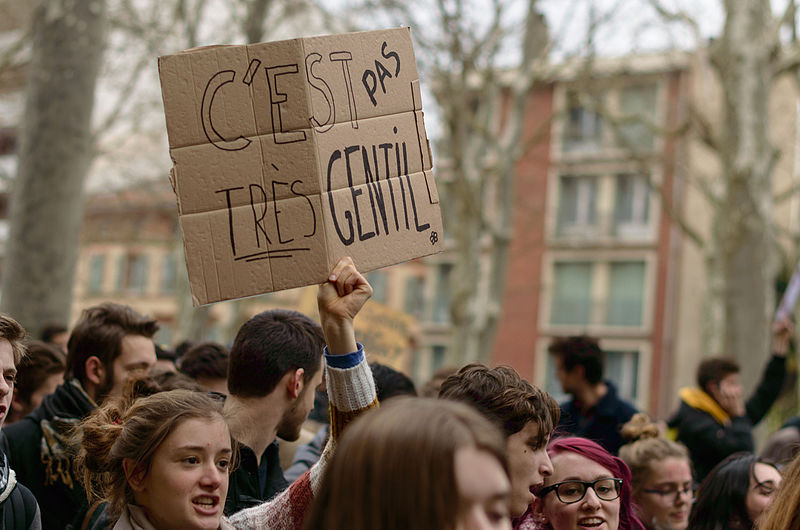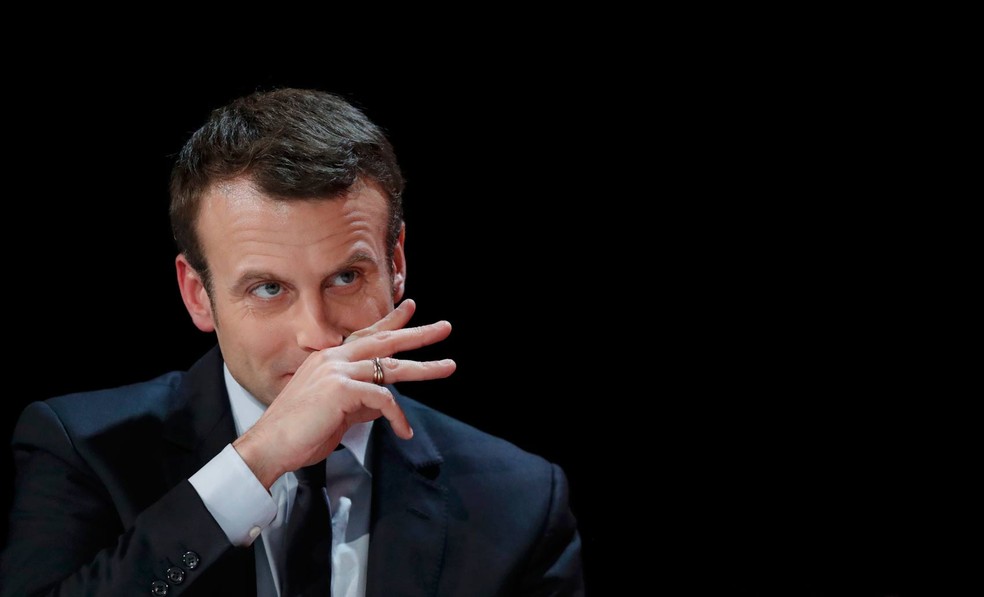Labor Law Reforms Send France Into a Frenzy

Amidst the shock of Brexit—followed by the equally controversial presidential election in the United States—the world was anxiously awaiting the French election’s results last May, which showcased two candidates with seemingly opposite viewpoints and voter demographics. While Marine Le Pen represented the xenophobia and extreme nationalism that continues to be a globally dividing force, Emmanuel Macron was perceived as the young, fresh candidate that could finally ‘break the cycle’ of the past year. When he won the election, France—especially the youth population—was ecstatic.
(Image Credit: Wikimedia Commons/ Gouvernement français)
The glory days are beginning to fade. Last week, France erupted in protests against Macron’s new labor law reforms, as thousands took to the streets of Paris to demonstrate their anger.
France has always been known for having a particularly tight-knit ‘Code du Travail,’ which is a system of employment laws geared towards the protection of workers’ rights. For critics, these laws guarantee too much protection; for example, under the current Code du Travail, the employer must specify a reason for firing an employee that fits within those outlined by the law. This isn’t as easy as it sounds. Once choosing a specified reason, an employer must then justify why it is necessary to fire this person over another in the same position. Because of complications like these, French firms are often too cautious in their hiring processes—contributing to unemployment—or may find themselves stagnant with a less-than-optimal team.
This ‘firing’ issue—one of the many criticisms of the Code du Travail—inspired Macron to reform the system and curb unemployment. According to The Economist’s Emmanuel Macron is trying to change France’s psychology, the new labor reforms are contained in five ‘ordinances;’ “it gives firms more flexibility to negotiate working conditions; it caps court-awarded redundancy payouts for unfair dismissals; it simplifies worker representation in companies; it allows small firms to bypass union agreements; and it makes it easier to hire people just for specific projects.”
(Image Credit: Wikimedia Commons/ Clément Gruin)
After announcing the details of this plan two weeks ago, large-scale strikes have been popping up all over the nation, some of them turning violent. For the protesting workers, the current Code du Travail represents the social model and structure that reflects what the nation stands for. Additionally, as Macron has often been criticized as a ‘president for the rich’ due to his past investment-banking career, protesters fear that this is the beginning of his turn against the working class.
As the Code du Travail begins to unravel, Macron’s popularity is unraveling with it. Throughout his campaign, Macron continuously announced his plan to reform labor laws, and still beat Marine Le Pen with 66% of the vote. Additionally, the Socialists and other predominant ‘strikers’ this week composed most of Macron’s voter demographic. Were people simply not listening to his campaign propositions, or was his win more of a vote-against Le Pen rather than a vote-for Macron?
(Image Credit: Flickr/ Jeso Carneiro)
As his approval rating now hovers at 36%, Macron may be facing a country that didn’t necessarily rally for him, but as a force against Le Pen. Until he succeeds in winning the support of his own voters, En Marche will turn into En Arrêt.










